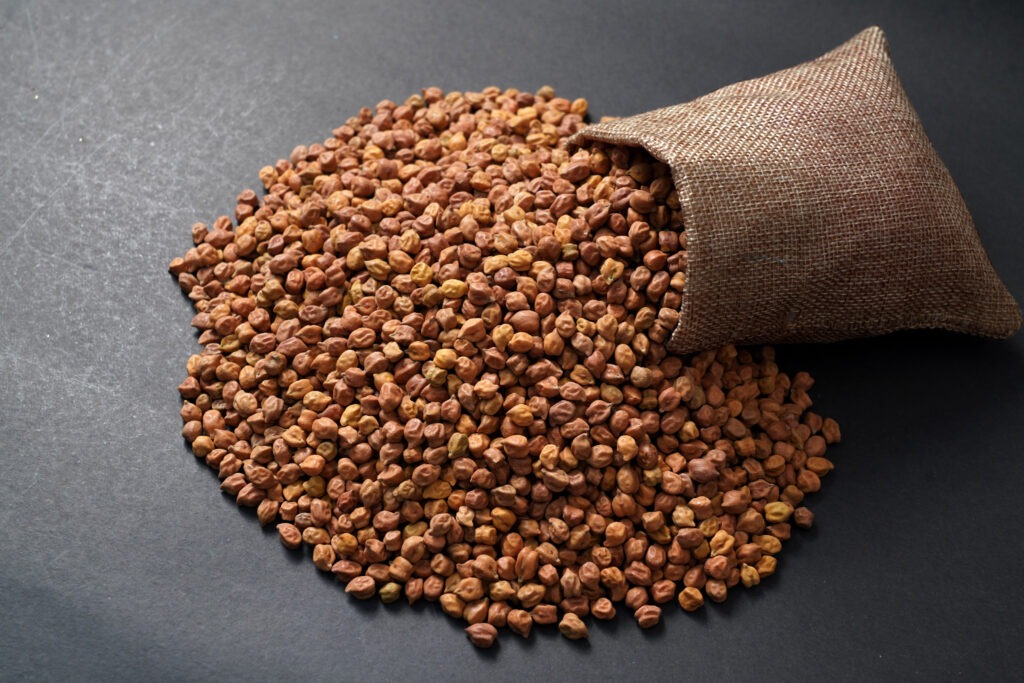Summary
Desi chickpea prices have shown positive movement following India's implementation of a 10% import duty and Australia's diminishing inventory levels. This market shift indicates a potential reversal of the recent bearish trend, with Australian export prices increasing by $5 per tonne across various destination markets. Meanwhile, India has also raised prices for Kabuli chickpea exports to Turkey and the UAE by 8-10% over the past month.
Market Dynamics Shifting
Desi chickpea prices increased last week as the market seeks equilibrium following India's introduction of a 10% import duty effective April 1. This price movement suggests the beginning of a trend reversal from the recent bearish market conditions. The duty implementation coincides with Australia's dwindling chickpea inventories, creating a dual pressure on prices.
India's strategic decision aims to protect domestic farmers by preventing chickpea prices from falling below the minimum support price (MSP) of ₹56,500 per tonne. This policy intervention comes at a time when the weighted average price of desi chickpeas in India stands at ₹56,730 a tonne, just marginally above the MSP.
Australia Responds with Price Adjustments
In response to these changing market conditions, Australia has adjusted its offer prices upward:
- April-May delivery: Increased by $5 to $675 per tonne
- May-June delivery: Raised to $685 per tonne
- Bangladesh-bound shipments: Up $5 to $675 for April-May delivery
- Pakistan and UAE markets: Prices increased to $690 and $680 respectively for May delivery
Myanmar's Competitive Position
Myanmar continues to maintain a competitive position in the market with:
- FAQ chickpea: Offered at $710 per tonne
- Husked split chickpea: Available at $990 per tonne
India's Duty Impact and Trade Relations
The trade community views India's 10% import duty as potentially insufficient to completely halt Australian shipments. Complicating the situation is the ongoing bilateral trade agreement negotiation between Australia and India, which could secure preferential treatment for Australian growers. Such an agreement might allow Australia to export at least 150,000 tonnes of pulses at half the standard duty imposed on other countries.
Kabuli Chickpea Market Trends
Parallel to developments in the desi chickpea market, India has strategically increased prices for Kabuli chickpea exports to key markets:
Turkey and UAE exports (May-June delivery):
- 12mm Kabuli: $1,450 to Turkey, $1,400 to UAE
- 9mm Kabuli: $1,150 to Turkey, $1,100 to UAE
Competitive offers from other origins:
- Argentina: 9mm at $1,150, 8mm at $860, and 7mm at $775 (EU ports)
- Russia: 6-7mm at $670 to Pakistan (May delivery)
Conclusion
The desi chickpea market is experiencing a significant transition period characterized by policy interventions and supply constraints. India's import duty implementation represents a balancing act between protecting domestic producers and maintaining relationships with key trading partners like Australia. The potential bilateral trade agreement between these nations could reshape regional trade dynamics in the coming months.
For traders and importers, this evolving situation presents both challenges and opportunities. The price strengthening indicates favorable conditions for sellers with existing inventory, while buyers may need to adjust procurement strategies. Monitoring Australia's remaining stock levels and India's policy enforcement will be crucial for market participants navigating this changing landscape.
Hectar's advanced market intelligence and cross-border trade expertise can help stakeholders navigate these complex market dynamics with real-time insights and optimized procurement solutions.
